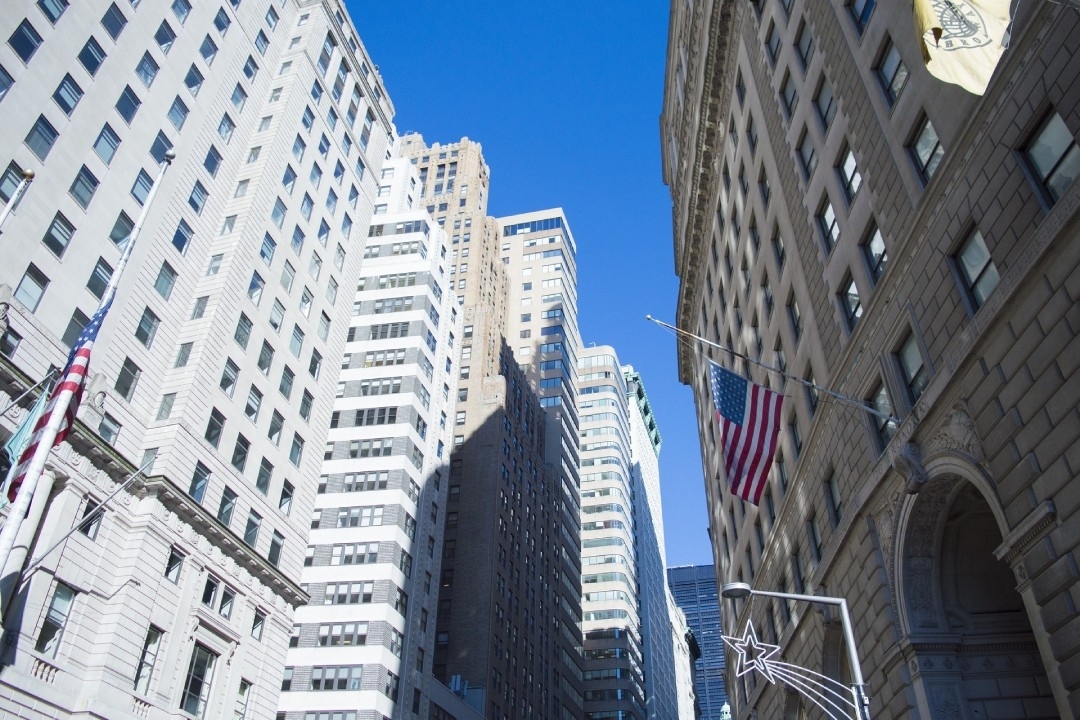
10 High Dividend U.S. Stocks to Watch in 2023
Shares that pay dividends easily attract investors' attention, but not all of them turn out to be good investment opportunities. Here are some of the high dividend U.S. stocks worth keeping an eye on.
What is the highest dividend-paying U.S. stock?
The highest dividend-paying stocks in the U.S. may vary depending on which metric you choose. In absolute terms, the stock that paid the largest amount of dividends in 2022 was Petróleo Brasileiro SA ($PBR), totalling a whopping US$36.17b paid to its shareholders, though those dividends are not recurring. If you're looking for recurring dividends, Microsoft ($MSFT) is the leader, having paid US$18.13b in the same period.
Judging by the annual dividend yield (estimated forward), the highest dividend-paying U.S. stock is Zim Integrated Shipping Services ($ZIM), with a dividend yield of 96.14%. Bear in mind that these estimates of forward dividends might not always play out and that one should not only focus on the dividend yield to select which stocks to invest in. Other factors like a company's performance, growth, and recurrence of said dividends, as well as other indicators of the company's financial health, should be considered when choosing whether or not to invest in a stock. If you are looking for more frequent payments, find some U.S. stocks that pay monthly dividends.
If you're looking for high dividend US stocks in 2023, here's a list of some of the companies worth looking into.
Top high dividend U.S. stocks
Company Name | Ticker | Stock Price | Year to Date | Market Capitalisation | Dividend Yield |
|---|---|---|---|---|---|
Pioneer Natural Resources Co. | US$220.44 | +0.09% | US$51.99b | 13.09% | |
Coterra Energy Inc | US$26.00 | +12.02% | US$19.76b | 10.02% | |
Devon Energy Corporation | US$54.61 | -6.04% | US$35.01b | 9.56% | |
Lincoln National Corporation | US$21.24 | -31.08% | US$3.51b | 8.78% | |
Altria Group Inc. | US$45.12 | -0.88% | US$79.25b | 8.46% | |
Newell Brands Inc. | US$12.60 | -6.39% | US$5.02b | 7.58% | |
Boston Properties Inc. | US$53.36 | -19.90% | US$8.32b | 7.38% | |
KeyCorp | US$12.28 | -30.27% | US$11.25b | 6.88% | |
Comerica Incorporated | US$43.53 | -34.10% | US$5.60b | 6.88% | |
Verizon Communications Inc. | US$39.63 | -1.22% | US$164.65b | 6.61% |
Data as of 11 April 2023.
✅ Sign up to Stake to start investing in high dividend U.S. stocks with $3 brokerage.
👉 Learn more about Stake pricing to discover how seamless investing can be.
Here are the U.S. dividend stocks to watch
1. Pioneer Natural Resources Co. ($PXD)
Market capitalisation: US$51.99b
Stock price (as of 11/04/2023): US$221.23
Dividend yield: 13.09%
Stake platform bought / sold (1 Jan 2023 - 11 Apr 2023): 73% / 27%
Pioneer Natural Resources ($PXD), is a leading independent oil and gas exploration and production company. The company's primary operations are in the Permian Basin in Texas, where it focuses on unconventional shale drilling. PXD has a long history of generating strong returns for investors, and its management team is known for its disciplined approach to capital allocation. Pioneer has a history of increasing its dividend payments to shareholders, with an annualised dividend growth rate of 33% over the past five years. However, the company did cut its dividend in 2016 due to the downturn in the oil and gas industry.
2. Coterra Energy Inc ($CTRA)
Market capitalisation: US$19.76b
Stock price (as of 11/04/2023): US$25.72
Dividend yield: 10.02%
Stake platform bought / sold (1 Jan 2023 - 11 Apr 2023): 68% / 32%
Coterra Energy ($CTRA) is a coal mining company that operates mines in the Central Appalachian region of the United States. The company produces and sells metallurgical coal, used in the production of steel, as well as thermal coal, used to generate electricity. Coterra Energy is a relatively new company, having spun off from Alpha Natural Resources in 2018. The company did not pay a dividend in 2020 or 2021, but it did pay a special dividend in 2019.
3. Devon Energy Corporation ($DVN)
Market capitalisation: US$35.01b
Stock price (as of 11/04/2023): US$53.54
Dividend yield: 9.56%
Stake platform bought / sold (1 Jan 2023 - 11 Apr 2023): 67% / 33%
Devon Energy ($DVN) is an independent oil and gas exploration and production company that operates primarily in the United States, with a focus on shale and tight oil formations. The company is also involved in the transportation, processing, and marketing of natural gas and natural gas liquids. The company has a mixed history of dividend payments, with several cuts and suspensions in recent years. For instance, Devon suspended its dividend in 2020 due to the impact of the COVID-19 pandemic on the oil and gas industry, but has since restarted to pay them.
4. Lincoln National Corporation ($LNC)
Market capitalisation: US$3.51b
Stock price (as of 11/04/2023): US$20.79
Dividend yield: 8.78%
Stake platform bought / sold (1 Jan 2023 - 11 Apr 2023): Not available
Lincoln National Corporation ($LNC) is a financial services company that provides life insurance, annuities, retirement plan services, and investment management services to individuals and institutions. The company's products and services are distributed through a network of financial advisors, brokers, and other intermediaries. LNC has a history of increasing its dividend payments, with an annualised dividend growth rate of 9% over the past five years. The company did cut its dividend in 2009 during the financial crisis, but has since recovered and increased its payments.
5. Altria Group Inc. ($MO)
Market capitalisation: US$79.25b
Stock price (as of 11/04/2023): US$44.39
Dividend yield: 8.46%
Stake platform bought / sold (1 Jan 2023 - 11 Apr 2023): 69% / 31%
Altria Group ($MO) is a consumer staples company that produces and sells tobacco products, including cigarettes, cigars, and smokeless tobacco products. The company's brands include Marlboro, Copenhagen, and Skoal, among others. Altria Group has a long history of paying dividends, with an annualised dividend growth rate of 7% over the past five years. However, the company has faced regulatory and legal challenges related to the health risks of tobacco products, which could impact future dividend payments.
6. Newell Brands Inc. ($NWL)
Market capitalisation: US$5.02b
Stock price (as of 11/04/2023): US$12.16
Dividend yield: 7.58%
Stake platform bought / sold (1 Jan 2023 - 11 Apr 2023): 64% / 36%
Newell Brands ($NWL) is a consumer goods company that produces and sells a wide range of products, including household and kitchen appliances, writing instruments, baby products, and outdoor gear. The company's brands include Rubbermaid, Sharpie, Graco, and Coleman, among others. NWL has a history of paying dividends but has not increased its payments in recent years. The company suspended its annual dividend in 2020 due to the impact of the COVID-19 pandemic but reinstated it in 2021.
7. Boston Properties Inc. ($BXP)
Market capitalisation: US$8.32b
Stock price (as of 11/04/2023): US$52.54
Dividend yield: 7.38%
Stake platform bought / sold (1 Jan 2023 - 11 Apr 2023): 53% / 47%
Boston Properties ($BXP) is a real estate investment trust (REIT) that owns and operates office buildings primarily in the United States. The company's properties are primarily located in Boston, New York City, Washington D.C., and San Francisco. BXP has a history of increasing its dividend payments, with an annualised dividend growth rate of 7% over the past five years. Like many real estate investment trusts and companies, it did cut its dividend in 2009 during the financial crisis but has since recovered and increased its payments.
💡Related: Are these the best REIT dividend stocks right now?→
8. KeyCorp ($KEY)
Market capitalisation: US$11.25b
Stock price (as of 11/04/2023): US$12.08
Dividend yield: 6.88%
Stake platform bought / sold (1 Jan 2023 - 11 Apr 2023): 62% / 38%
KeyCorp ($KEY) is a regional bank that provides a range of banking and financial services to individuals, small businesses, and corporate clients. The company operates primarily in the Midwest, Northeast, and Pacific Northwest regions of the United States. KeyCorp has a history of paying dividends, but has not increased its payments in recent years. The company suspended its dividend in 2009 during the financial crisis, but has since recovered and resumed payments.
9. Comerica Incorporated ($CMA)
Market capitalisation: US$5.60b
Stock price (as of 11/04/2023): US$42.65
Dividend yield: 6.88%
Stake platform bought / sold (1 Jan 2023 - 11 Apr 2023): 37% / 63%
Comerica Incorporated ($CMA) is a financial services company that provides banking, investment, and wealth management services to individuals, businesses, and institutional clients. The company operates primarily in the United States, with a focus on the Midwest and Southwest regions. Despite paying dividends regularly, they did halt their dividend payments in 2009 like many other companies of the financial sector, but they quickly reinstated their dividend payments, even though it has not risen in the last few years.
10. Verizon Communications ($VZ)
Market capitalisation: US$164.65b
Stock price (as of 11/04/2023): US$39.21
Dividend yield: 6.61%
Stake platform bought / sold (1 Jan 2023 - 11 Apr 2023): 72% / 28%
Verizon Communications ($VZ) is a telecommunications company that provides wireless and wireline communication services, including voice, data, and video services, to consumers and businesses. The company operates primarily in the United States, with a focus on the East Coast and West Coast U.S. regions. Verizon has had an annualised dividend growth rate of 2% over the past five years. The company did not cut its dividend during the COVID-19 pandemic and has continued to increase its payments.
Is it worth investing in U.S. dividend stocks?
The decision on whether or not investors should invest in U.S. dividend stocks ultimately depends on their investment goals, risk tolerance, and financial situation.
Dividend stocks are a popular investment choice for those seeking regular income from their investments. These stocks often pay dividends and are typically issued by established, financially stable companies with a track record of paying out dividends to shareholders.
One advantage many investors see in investing in U.S. dividend stocks is that they can provide a relatively stable source of income compared to other types of investments. These U.S. shares can also offer potential for long-term capital appreciation, as well as provide diversification to your portfolio.
However, it's important to note that investing in any stock comes with risks. Stock prices can fluctuate based on market conditions, economic factors, and company-specific news. Additionally, a company may decide to reduce or suspend its dividend payments, which can negatively impact the value of the stock and your investment returns.
Before investing in U.S. dividend stocks, it's essential to conduct thorough research on the individual companies you are considering, as well as to diversify your portfolio to minimise risk. Find out more in our guide on how to buy dividend stocks, and see if it's the right approach for you.
💡Related: Dividend stocks on ASX→
💡Related: Top 10 Dividend ETFs in Australia→
What about investing in high dividend U.S. ETFs?
Investing in high dividend U.S. ETFs can be a good option for those seeking exposure to a diversified portfolio of dividend-paying stocks. ETFs, or exchange-traded funds, are investment vehicles that track a specific index or sector, providing investors with access to a wide range of stocks with lower transaction costs compared to buying individual stocks.
These types of U.S. ETFs typically invest in companies with a history of paying high dividends, and may also focus on specific sectors or industries. One advantage of investing in these ETFs is that they provide exposure to a diversified portfolio of stocks, reducing the risk of investing in individual companies.
However, it's important to note that ETFs on Wall St paying high dividends can still be subject to the risks of the stock market, and may also have higher fees and expenses compared to other ETFs. Additionally, high dividend yields may be a sign that a company is facing financial difficulties, which could result in lower dividends or reduced earnings growth and stock prices.
If you're looking to invest in high dividend U.S. ETFs, these are the top three largest funds:
- $VIG: The Vanguard Dividend Appreciation ETF seeks to track the performance of the NASDAQ US Dividend Achievers Select Index, which includes U.S.-listed companies that have a history of increasing their dividends over time. VIG's focus on dividend growth rather than high yields can make it a good choice for investors who prioritise steady income streams and want to invest in financially strong companies with a track record of consistent dividend increases. VIG has a relatively low expense ratio of 0.06% and includes a diversified portfolio of large-cap stocks.
- $VYM: The Vanguard High Dividend Yield ETF seeks to track the performance of the FTSE High Dividend Yield Index, which includes U.S. companies with relatively high dividend yields. VYM's focus on high yields can make it a good choice for investors who prioritise immediate income generation but may not be suitable for those seeking long-term growth, as high yields can sometimes signal a lack of financial strength or growth potential. VYM has an expense ratio of 0.06% and includes a diversified portfolio of large-cap and mid-cap stocks.
- $SCHD: The Schwab U.S. Dividend Equity ETF seeks to track the performance of the Dow Jones U.S. Dividend 100 Index, which includes U.S. companies with strong fundamentals, stable earnings, and a history of paying dividends. SCHD's focus on high-quality companies with consistent dividends can make it a good choice for investors who prioritise income generation and stability but also want exposure to growth opportunities. SCHD has a relatively low expense ratio of 0.06% and includes a diversified portfolio of large-cap and mid-cap stocks, with a slight tilt toward value stocks.
This does not constitute financial product advice nor a recommendation to invest in the securities listed. Past performance is not a reliable indicator of future performance. As always, do your own research and consider seeking appropriate financial or taxation advice before investing.

Stella is a markets analyst and writer with almost a decade of investing experience. With a Masters in Accounting from the University of Sydney, she specialises in financial statement analysis and financial modelling. Previously, she worked as an equity analyst at Australian finance start-up, Simply Wall St, where she took charge of the market insights newsletter sent out to over a million subscribers. At Stake, Stella has been key to producing the weekly Wrap articles and social media content.

